I’ve spent a good deal of my career as a marketer for online businesses devising strategies to help fast moving companies grow!
But, the thing is, sometimes it’s hard to know where to start and sometimes you just want someone to spell out for you what all this blogging and content marketing business is all about!
I wanted to go over some of the fundamentals of blogging to simplify the basics and to help people on the path to success.
Disclaimer: This post contains links, that if clicked, and you make a purchase, or start a trial, I may make a small commission, at no additional cost to you. I only recommend products I 🧡
What is a blog?
A blog is simply a type of website where “bloggers” regularly write medium length articles or “posts” on specific topics of interest.
These posts form the blog are usually listed in chronological order with the latest posts being presented first.
The term Blog is a shortened version of the word Weblog, and as the name suggests, it resembles a type of personal journal, or log.
A blog can be a part of a website or be the website itself.
Typically, a website is mainly static, with blog posts being updated regularly.
Whether you create a blog or a website with a blog on it depends on the purpose and outcomes desired.
There are more than 600 million blogs on the internet right now and this number is growing exponentially.
COVID19 has also meant that many, many more companies and individuals are setting themselves up with more of an online presence.
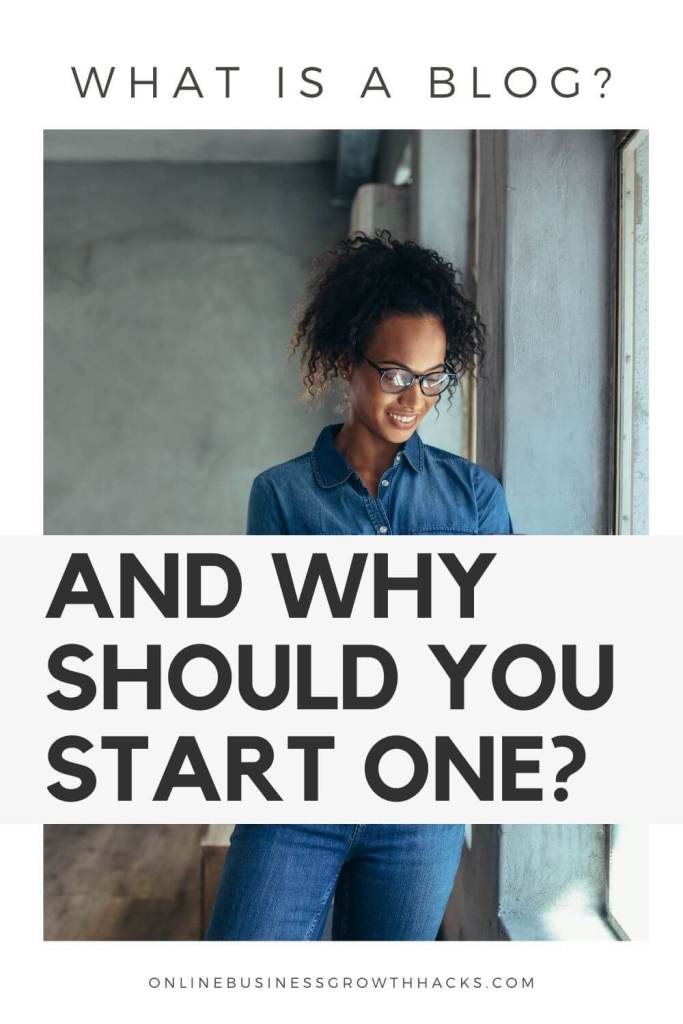
What is a blogger?
A blogger is usually considered someone (an individual) who writes on a personal, or niche blog.
But, a blogger can technically be anyone who writes posts for blog sites.
Either for themselves, or for another company or business. Although people who write blog posts as employees for other companies are typically called content writers, content marketers or editors.
What is a blog post?
A blog post is an article that is written by a blogger and published on a blog or website.
Blog posts are typically between 600-2500 words long. Google favours longer content for search results as a rule of thumb.
The typical blog post is around 1150 words long. However, the optimal blog length according to 99 Firms is between 2250 and 2500 words. Micro blogging on the other hand requires much few words – usually around 300.
A wee interesting fact, also by 99 Firms, is that the ratio of bloggers who publish under 1000 words vs those who publish over 2000 words is 16:1!
Wooooahhhhhh … that’s a massive fact to keep under your belt when you’re thinking of how you can best stand out in a crowded sea of blogging enthusiasts. Store that fact away for later people!
A blog post is typically structured the same way no matter what type of blog it is.
The use of proper structure for your headers and content enables search engines to scan (crawl) your content more easily. Meaning you have a higher chance of ranking for a particular keyword in the SERPs.
7 things to include in all blog posts:
- Title (H1 header)
- Introduction
- Table of contents
- Sections with H2 (andH3) headers
- Graphs, images and other visuals
- Wrap up or conclusion
- Call to action
You might also find these posts helpful:
How to Structure your blog posts to delight your readers
What is a blog used for?
Blogging comes in many shapes and forms but, you can essentially boil it down into three different broad categories.
- A Personal journal – Telling a story – or journaling your thoughts
- Education – Answering an audience’s questions or imparting knowledge
- A Content Marketing Tool – Driving traffic to a brands website or product
Personal Blog
This type of blog is where it first all began! Justin Hall was thought to be the first blogger with his online journal Links.net. Worthwhile taking a look at this! Even if for just a stroll down memory lane if you’re old enough to remember the old style layouts and interfaces of internet 1.0!
A personal blog is where an individual shares his or her thoughts about topics they are interested in or passionate about. Some Personal blogs focus on a particular niche or topic while others are more meandersome.
Business Blog
A business may start a blog to generate leads for their product or service.
Generally speaking a business blog will follow a content marketing strategy in order to attract, engage, convince and delight their audience.
Big and small businesses create blogs in order to both educate and delight their customers.
More on Content Marketing below.
Niche Specific Blogs
Some bloggers start a blog for the sole purpose of making money online.
Other times personal bloggers find themselves becoming particularly popular and so focus down and monetise their blogs. Either way. Niche specific blogs have become super popular and profitable over the past ten years .
The emergence of the Lifestyle Blog, where bloggers write about their lives typically in terms of selfcare, wellness, nutrition, fitness, beauty and style has proven a particularly profitable and popular niche. Although broader than most niche blogs.
Fitness, travel, beauty, food, finance and DIY and crafts are all popular niche blog topics.
There are other types of blogs but these three tend to encompass the majority of offerings.
What is Content Marketing?
One of the strategies employed as part of an inbound marketing methodology is content marketing.
Inbound marketing simply means marketing efforts that drive customers to a product or service through a funnel type strategy. Types of inbound marketing include SEO, social media and content marketing.
Content marketing means to offer advice, education or entertainment to an audience in the hopes of them becoming interested in a brand, then going on to becoming a paying customer – then, ultimately a fan or evangelist.
More than half of all marketers say they use content marketing as a way to drive traffic into their sales funnels. The more high quality, well qualified traffic you can capture into your marketing net, the more chance you have of converting this traffic into sales.
As a blogger, content marketing is about writing content that first attracts the right audience… then offering content that both inspires and educates… before moving on to content in the funnel that sits in the consideration then decision making stages of the buyer journey.
Loosely speaking, the buyer journey looks something like this
- Awareness
- Consideration
- Decision
Using your blog to drive traffic to your website to sell a product or a service means writing content that flows through all stages of the buyer journey.
An example might be:
You’re a Skincare company and your target market is women entering their 40’s.
You might start with articles that address general skincare issues like dryness, or blemishes. Offering a way for your audience to get to know that you’re an expert in your field.
Then, you’ll move onto more detailed articles about the types of ingredients that are beneficial.
Eventually, you’ll look to write comparison type posts focussing on reviews of different brands or products, including your own.
The main thing to remember with content marketing is to not hit your audience with the hard sell first!
You have to build up their trust in you as a brand. You want to make sure you are solving their problems. And building rapport. Then when they are ready to buy, you’ll be there with recommendations.
How do bloggers get paid?
A business blogger gets paid by selling products and services on their blog – using blogging as a content marketing strategy to attract customers
A niche specific blogger gets paid by offering products or services on their blog, incorporating affiliate marketing on their blog, gaining sponsorships, or selling ad space to other companies on their blog.
You can read more about how to make money blogging here:
The 3 Best ways to make money blogging
How do you get started blogging?
First of all you have to consider your reasons for why you want to start a blog.
Perhaps you have a story to tell or thoughts to share?
Maybe you’re ready to chuck in your 9-5 and go all in on making your blog your main source of income?
Or, you might have a product that you’re wanting to start marketing using a content marketing strategy.
Whatever your reason for wanting to start a blog, you simply need to set yourself up on a platform that will enable you to publish your content to the internet.
There’s a few ways you can do this and I’ll share those below.
If you’re just starting out, read this:
How to Start A Money Making Blog – The Ultimate Guide
What Blogging platform should I use?
There’s a bajillion blogger platforms to choose from – all of which have their pros and cons.
And, depending on why you started a blog and what you want to achieve from it, certain platforms will prove better over others.
So, first up. You need to figure out if you want your blog to be a stand alone entity. Ie: it will have its own platform… or if you’re going to blog on someone else’s platform.
This sounds tricky and confusing right!? Right!
You CAN blog on other platforms without having to create a blog. This is called micro blogging.
What is Microblogging?
Microblogging is a way to get your thoughts and ideas out into the wilderness without the setup and maintenance of actually having your own blog.
A microblog has short and to the point content pieces (words, videos, GIFs, images etc) – normally around 300 words. But certainly under 1000.
Instagram is one of the best places to blog if you don’t want to create your own space. Twitter or Facebook are also great platforms to Micro blog on. And, Tumblr is probably the most well known microblogging platforms around.
There are cons to this however…. You don’t own the space! So the rules can change, your reach isn’t exactly in your control and the platform might shut down. Taking your work with it.
Microblogging Pros? Tonnes!
- You can start building your brand without any setup hassle.
- You can start building your audience and community.
- You can reach people instantly!
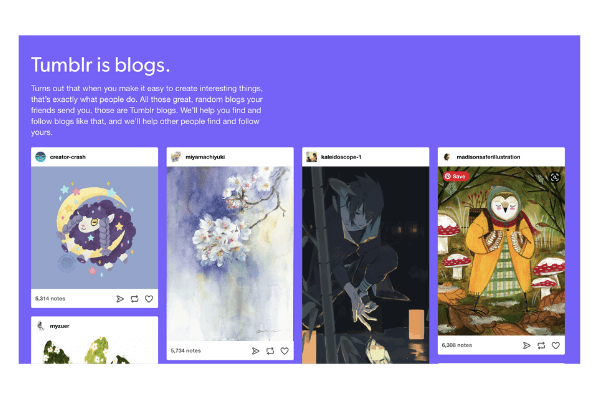
What Blogging Platforms are the best?
If you want to set up your blog as a standalone entity ie: not a microblog and, not part of your website…. Then there’s options! Lots of them! I’ll run you through five of the most widely used and loved ones below.
WordPress.org
Generally speaking, if you want to own your site and have the ability to customise as you wish… AND make money from your website, then you should go with a self hosted blog.
This means that you buy the domain and the web hosting and create the site yourself. But don’t fear! You get to choose a theme, either paid or free and build it from there.
The best way to start a self hosted website is via WordPress.org.
WordPress.org is FREE software! You just pay for the domain and hosting.
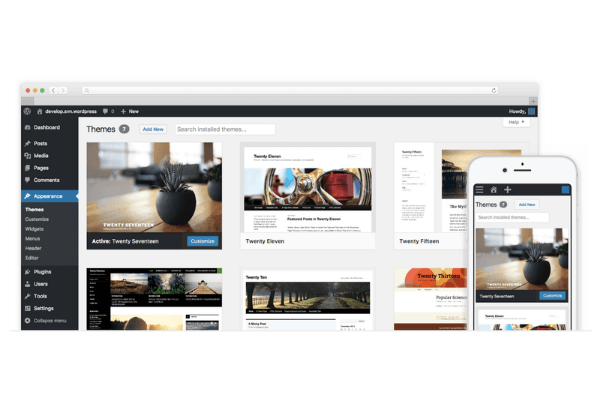
You can read a bit more about WordPress.com and WordPress.org over here.
What’s the difference between wordpress.com and wordpress.org?
Hosts vary in price, support and speed. So choose wisely.
My pick for the starter blogger – who wants cheap and to get going fast is Bluehost. Starting at only $2.95 per month this is a great way to go. They even give you a free domain.
If you want a bit more grunt you can either go with Lyrical Host– made especially for bloggers or Siteground. Both of which are super options for bloggers.
Grab a discount at checkout with Lyrical host with this code LOUISE10. (AF)
You can find a great domain name NameCheap – they also offer hosting.
But always figure out your host provider first… that way you’ll know if you need to (additionally) buy a domain or not!
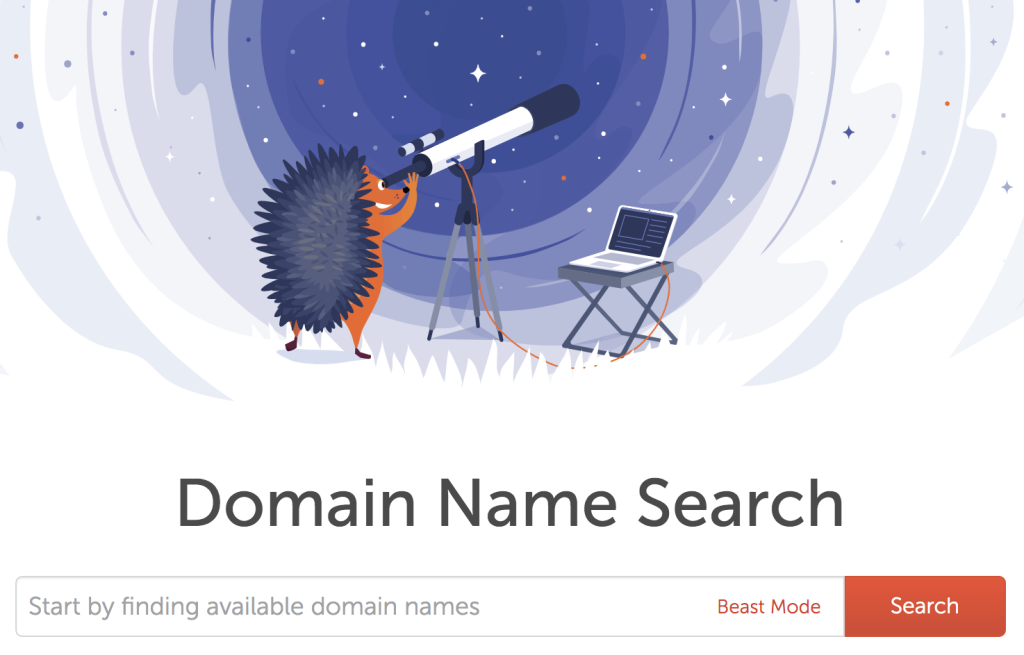
There’s plenty of other platform options available to you to create your blog on!
WordPress.com
Similar to wordpress.org… confusing right! But they run off the same software- which is open sourced.
WordPress.com lets you create a blog without having to self host. Great for newbies. They even have a free plan, but this is pretty limited.
Be warned, you will not be able to monetise easily or add plugins on a WordPress.com blog. So choose wisely from the get go!
Blogger
This one’s super popular. It’s a platform by Google – they bought it off Pyra Labs in 2003. It’s free. And easy to set up.
A few cons though. Blogger is not easily customized and offers limited features for serious blogger. You also don’t own the space you’ve built your blog on.
Squarespace
A drag and drop website builder, Squarespace is pretty popular amongst bloggers. Pretty simple for anyone to use in my opinion but very limited in terms of features and available integrations.
Squarespace pricing starts to get up there once you move past the basic plan. But it’s a pretty good option for non techie bloggers who just want a basic place to blog.
Wix
This would have to be one of the most popular alternatives to Blogger or WordPress.
WIX lets you build your blog with drag and drop functionality. They offer a multitude of template options and you can make your blog look pretty spectacular!
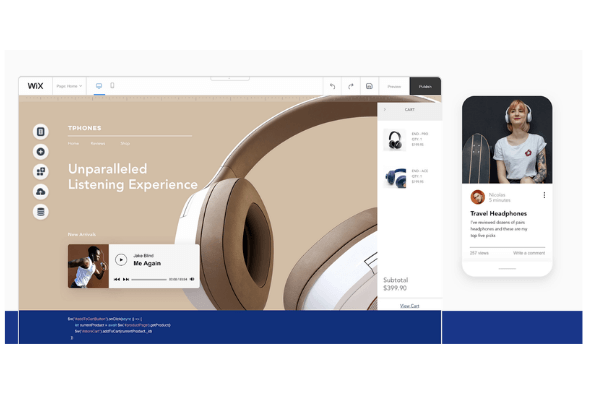
Features wise, this isn’t going to be as good as WordPress.org… but it’s a pretty good option if you’re super non-techie and want an easy build.
Pricing wise. It’s pretty good.
My picks are WIX if you want totally hassle free or WordPress.org if you want lots of freedom to add plugins and features.
Wrap up
Blogs are definitely not dead, nor are they going anywhere soon. In fact, 2021 might just see a resurgence of many, many more blogs given the need for more and more companies to develop their online marketing efforts.
So, if you’re thinking of blogging, go ahead! Get into it. It’s really satisfying and not only can it be a great creative outlet, it can also make you a decent income as well!
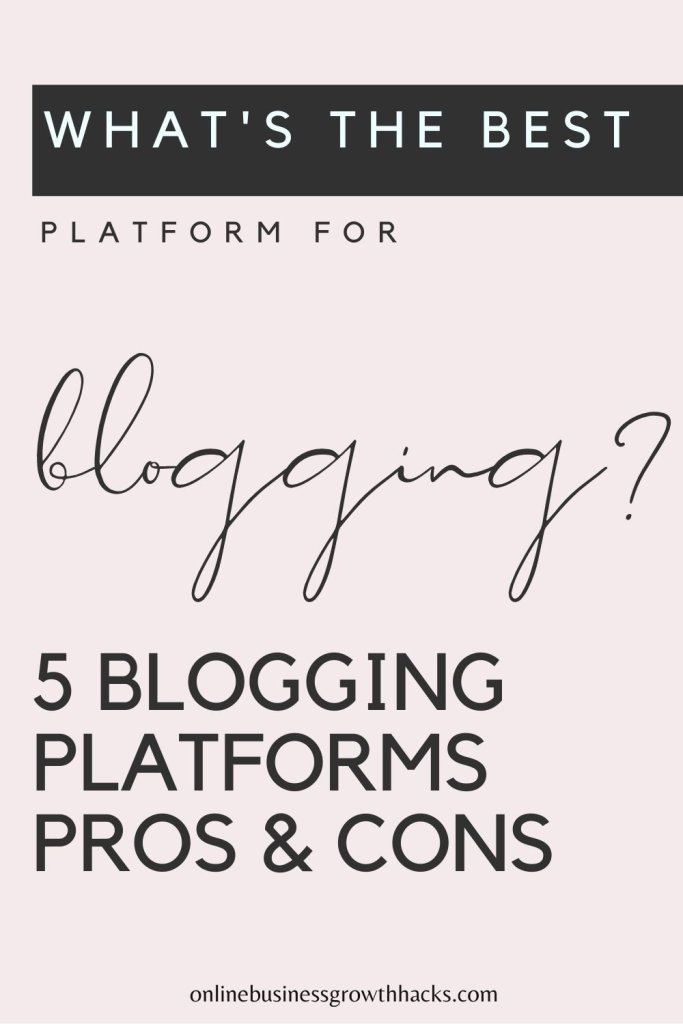

Leave a comment